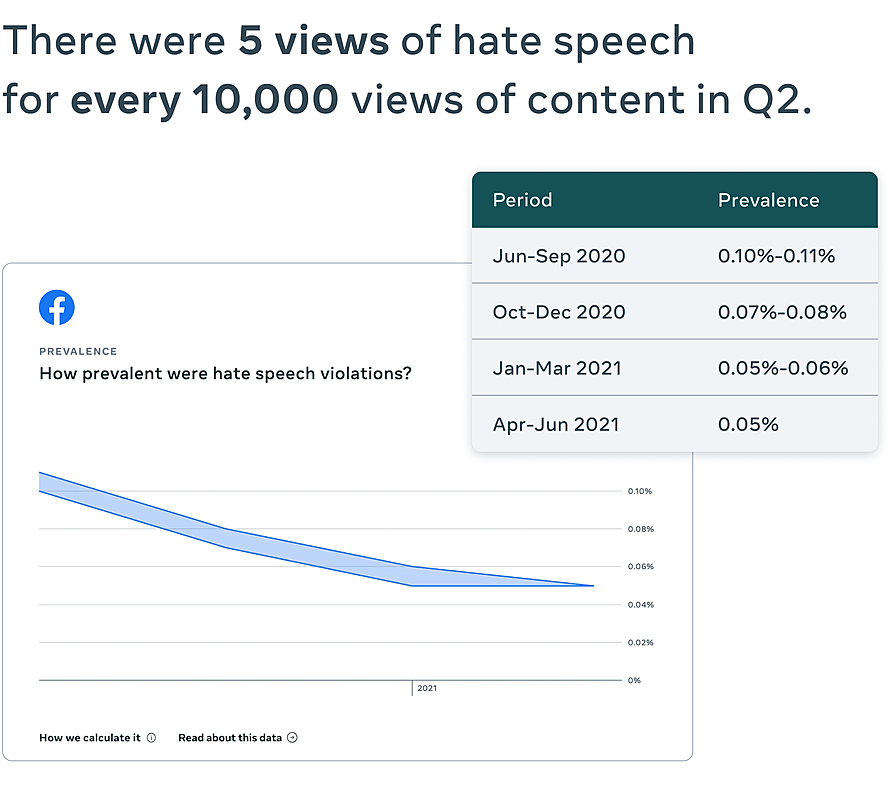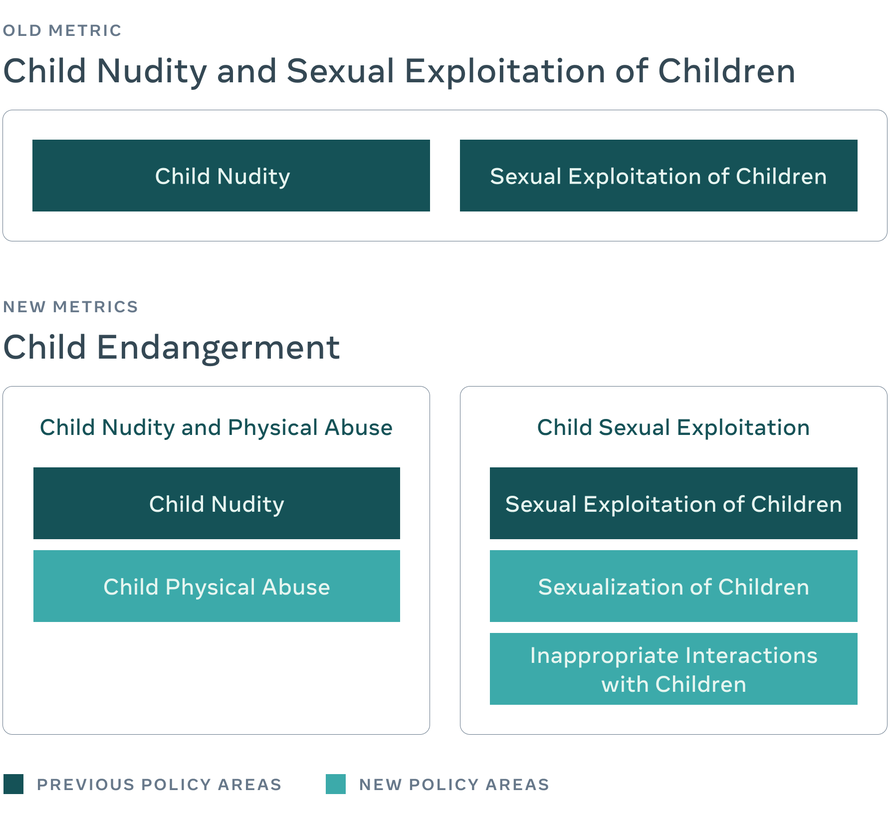24 December 2024, Tue |
12:13 AM

Facebook revealed Community Standards Enforcement Report, Q2 2021. This report contains data on how we implemented our rules from April to June. This is our tenth report, and the following are some of our long-term trends:
Three-quarters of the time since we began reporting on hate speech, it has decreased in prevalence. Improved hate speech detection and News Feed ranking changes are to blame for this.
Besides our Community Standards Enforcement Report, this quarter, we’re also sharing:
Updates on our efforts to promote reliable information about COVID-19 and vaccines, as well as to reduce harmful misinformation.
If the data shows areas where we need to improve, we’re committed to sharing it to be held accountable for our progress.To kick off a new series of reports, we’re releasing the top 20 most viewed domains, links, Pages, and posts in the United States. Transparency Center makes these reports available, and we’ll include them in future quarterly Community Standards Enforcement Reports.
Our commitment to helping people find reliable information, including information on the COVID-19 vaccine, will not change. To this day, we’re removing harmful COVID-19 misinformation and banning ads that try to profit from the pandemic’s spread. From the beginning of the pandemic to the end of June:
Using our COVID-19 Information Center, educational pop-ups on Facebook and Instagram, and our vaccine finder tool, we’ve helped 4 million people in the United States gain access to vaccines.
According to public health research, vaccination rates are higher among those who see others in their community getting vaccinated. Vaccines are widely available in countries where the majority of people have access to them
According to a new study, vaccine hesitancy has dropped by 50% among Facebook users in the United States. We’ve also seen a rise in vaccine acceptance around the world. So, for example, our COVID-19 Trends and Impact Survey data, which we conduct in partnership with Carnegie-Mellon and the University of Maryland, has shown that vaccine acceptance has increased by 35 percent in France, 25 percent in Indonesia, and twenty-five percent in Nigeria, since the beginning of this year.
For the third quarter in a row, hate speech on Facebook has decreased. A total of 5 views per 10,000 views was recorded in Q2, down from 5 to 6 views per 10,000 views in Q1.

During Q2, we removed 31.5 million pieces of hate speech from Facebook, compared to 25.2 million in Q1; and 9.8 million pieces of hate speech from Instagram, an increase from 6.3 million during Q1. This is because we are constantly improving our proactive detection methods. Facebook and Instagram hate speech violations can now be detected by our investments in artificial intelligence (AI). The Reinforcement Integrity Optimizer (RIO), for example, allows our AI models to detect hate speech using real-world data and to improve over time. This technology allows us to enforce our policies across billions of users in multiple languages and across billions of users worldwide using this technology.
Making sure our apps are safe for kids to play on is essential. Prior to this, we reported on child nudity and sexual exploitation of children as key metrics. More data and two new reporting categories under the broader topic of child endangerment have been added to our latest report. As well as sexual abuse, there is also nakedness and physical exploitation.

We changed this to give child safety experts, academics, and the general public a more detailed, transparent overview of our efforts in this space.
On Facebook, we expanded our media matching technology and improved our proactive detection technology in Q2 2021, allowing us to remove elder, violating content. We were able to take action on more infringing content as a result of both of them.
There were new categories and improvements in reducing prevalence, as well as
On Instagram in Q2, we took action on: